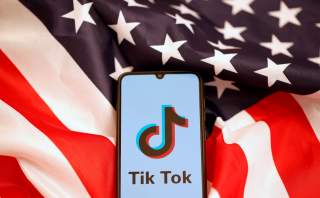Should America Be Afraid Of China's TikTok?
The app has caught the attention of The Committee on Foreign Investment in the United States.
How is it that an app for sharing comedic (sometimes juvenile) videos, skits, and (bad) karaoke has attracted the attention of The Committee on Foreign Investment in the United States (CFIUS), the guardian of national security regarding acquisitions of US companies? The app, TikTok, which was launched in 2017, is wildly popular with teenagers around the world as a zany escape — it has been downloaded 1.5 trillion times globally and 122 million times in the US. Behind all of the angst and fear is one fact: The app is owned by a Chinese company, ByteDance, founded in 2012.
TikTok: A brief history
Beijing-based ByteDance acquired Shanghai-based Musical.ly in 2017 for $1 billion. Musical.ly had an office in Santa Monica, California and already enjoyed a strong following in the US, with 60 million monthly active users globally. After the acquisition, which is the basis for the CFIUS review, ByteDance eliminated Musical.ly and created TikTok in its stead. At this point, ByteDance, which owns a number of news and entertainment apps, has been in talks with investors to raise funds that would raise the value of the company to some $75 billion, making it one of the most valuable tech startups in the world.
Recently, a bipartisan group of US Senators has expressed alarm over TikTok’s growing influence on US teenagers and the app’s presence in the US market. In a letter, Sens. Chuck Schumer (D-NY) and Tom Cotton (R-AR) warned that TikTok, despite its claims of independence, was still bound by China’s authoritarian regime, and could be compelled “to support and cooperate with intelligence work controlled by the Chinese Communist Party.” Sen. Marco Rubio (R-FL) has also labeled the company a “tool” of the Chinese Communist Party.
In truth, it is astonishing that this goofy app has raised a number of complex policy challenges in the US. This blog explores one significant new issue: Does TikTok’s independence from or servility to China’s all-pervasive censorship system present questions of national security for the US? Critics have charged that TikTok abides by Beijing’s sweeping Great Firewall of censorship, pointing particularly to the almost total lack of references to the pro-democracy protests in Hong Kong.
TikTok, which is assembling a high-powered lobbying team in Washington, strongly denies that its “moderation” policy ferrets out negative contributions concerning China. TikTok’s US general manager Vanessa Pappas argues that while the app has had kinks to work out because of rapid growth in the US, its US “moderators” screened content for the US market and had not taken orders from Beijing. She has stated more generally that TikTok’s business model is aimed at amusing fare, consciously excluding the political jibes found on YouTube and Facebook. She has also claimed that her bosses in Beijing have assured her a “large degree of autonomy and full autonomy on decisions like content moderation.” After interviews with a number of former US TikTok employees, however, The Washington Post reports that real direction and decisions come from the parent company in Beijing. Pappas counters that circumstances have changed and that ByteDance now “understands they can best [manage] without executives 10,000 miles away involving themselves” in US management decisions. Whatever the case at the moment, China experts have no doubt that Beijing’s information guardians would intervene at any point they sensed the Communist Party line was being subverted.
The CFIUS review
This brings us to the rationale behind the CFIUS review. ByteDance did not seek CFIUS approval for the 2017 acquisition of Musical.ly, but CFIUS has broad authority that allows it to intervene even after a merger has been consummated.
Front and center in the CFIUS review is the issue of the company’s place in the Chinese censorship system. In a recent speech, Facebook’s Mark Zuckerberg specifically mentioned TikTok in discussing Chinese censorship. Should the CFIUS decision rest on the issue of censorship, it would break new ground — but CFIUS has been expanding the reach and rationale for intervention and interdiction for some years, moving beyond a specific technology or process.
This has been particularly evident when Chinese companies were concerned. In 2018 CFIUS vetoed the bid of China’s Ant Financial to acquire MoneyGram out of fear that the Chinese government would gain access to US citizens’ financial records. Similarly, CFIUS forced Beijing Kunlun Tech to sell Grindr out of fear that data from the gay dating app could be used to blackmail or extort information from US citizens and government officials.
CFIUS is not required by law to give a complete explanation of the rationale behind its decisions. However, should it be determined that the basis for whatever action is taken against TikTok is based on its subservience to the Chinese censors, CFIUS would have advanced into a vast new realm of national security criteria, with huge potential implications for platform-based data and transactions in many area. As one legal expert on the CFIUS process has noted: “This is a new space for CFIUS regulation that will bring a lot more social media companies into scrutiny.” Thus, a decision not to be taken lightly.
Something to ponder the next time you cringe at the juvenile gags on TikTok. (For a thoughtful, more extended analysis of the developing TikTok episode, see Robert D. Williams’ analysis in Lawfare.)
This article by Claude Barfield, a resident scholar at AEI, first appeared at the American Enterprise Institute (AEI).
Image: Reuters.

